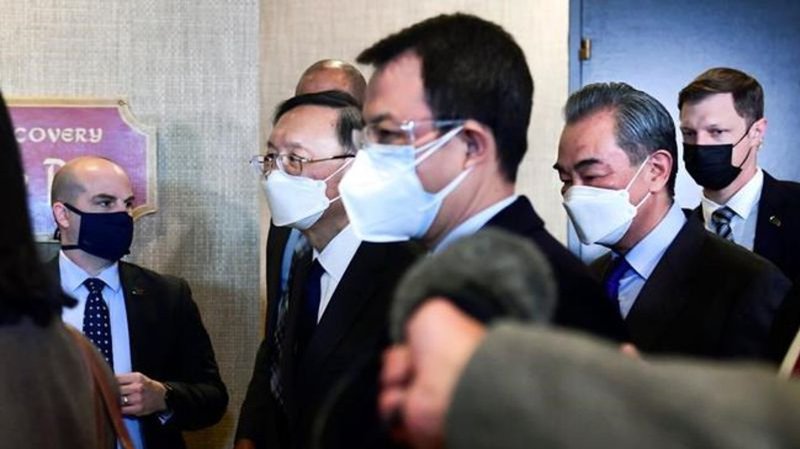
US, China wrap up testy 1st face-to-face talks under Biden
ANCHORAGE, Alaska — Top U.S. and Chinese officials wrapped up two days of contentious talks in Alaska on Friday after trading sharp and unusually public barbs over vastly different views of each other and the world in their first face-to-face meeting since President Joe Biden took office.
The two sides finished the meetings after an opening session in which they attacked each other in an unusually public way. The U.S. accused the Chinese delegation of “grandstanding” and Beijing fired back, saying there was a “strong smell of gunpowder and drama” that was entirely the fault of the Americans.
The meetings in Anchorage were a new test in increasingly troubled relations between the two countries, which are at odds over a range of issues from trade to human rights in Tibet, Hong Kong and China’s western Xinjiang region, as well as over Taiwan, China’s assertiveness in the South China Sea and the coronavirus pandemic.
“We got a defensive response,” Secretary of State Antony Blinken said after the meetings concluded.
